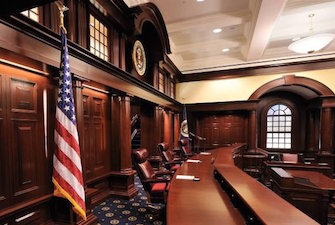Infringers may soon pay a heavy price in China
Chinese President Xi Jinping recently made some unusually strong comments regarding intellectual property. “Wrongdoing should be punished more severely so that IP infringers will pay a heavy price,” Xi said.
According to IAM, the comments from President Xi are the most extensive he’s made in public on the subject of intellectual property protection. He called on national authorities to advance IP regulations, improve the quality and efficiency of examinations and to accelerate the building of IP institutions. The remarks are a major acknowledgement of the importance of strong IP protections to a nation’s economy, directly from the head of state of one of the world’s major economies.
Political leaders in Washington, DC should take notice of Xi’s comments. In China, where there is single-party rule, change can happen dramatically, as we have already seen on the patent and innovation landscape. With the support of President Xi, China could very quickly move to become the preferred jurisdiction for innovators, given the market size afforded by a country with 1.4 billion people. If acted upon in a serious way, this new Chinese approach to dealing with infringers could send a shockwave through the entire intellectual property community, if not the entire world economy.
“President Xi’s statement on the importance of IP enforcement indicates China’s growing status as a leader in innovation,” said Erick Robinson, a U.S. patent attorney based in Beijing. He is Director of Patent Litigation at Beijing East IP. “China knows that only by protecting patent rights will individuals and companies have incentive to create new technical solutions.”
At a time when President Xi is actively moving China’s IP policy to a place where infringers are met with harsher penalties, some Congressional leaders support legislation that continue attempts to further gut the U.S. patent system, allowing infringers a free holiday and the ability to infringe without consequence or penalty. In recent days, the House IP subcommittee has piled on, looking for ways to further reduce venue for plaintiffs in infringement suits and turning into a forum for attacking judges on patent cases and the critics of patent reform.
While factions within the U.S. seriously discuss further dismantling the U.S. patent system in favor of infringers, China takes the lead in increasing the enforceability of patents.
Rovi sues Comcast for patent infringement of TV guide patents
 On April 1, 2016, Rovi Corporation filed a patent infringement lawsuit against Comcast in the Eastern District of Texas, Marshall Division. In the complaint, which is quite detailed and very long (174 pages), Rovi is asking for a preliminary injunction, a finding that Comcast’s infringement is willful and deliberate, a finding that the case is exceptional and attorneys fees’ are appropriate, as well as damages for the infringement.
On April 1, 2016, Rovi Corporation filed a patent infringement lawsuit against Comcast in the Eastern District of Texas, Marshall Division. In the complaint, which is quite detailed and very long (174 pages), Rovi is asking for a preliminary injunction, a finding that Comcast’s infringement is willful and deliberate, a finding that the case is exceptional and attorneys fees’ are appropriate, as well as damages for the infringement.
The lawsuit alleges that 12 years ago, Comcast took a license to Rovi’s patent portfolio, but that license expired on March 31, 2016, without being renewed. Rovi says that Comcast has failed to remove any of its products and services from the market and also continues to provide those products and services, all of which are now infringing because of the expiration of the patent license agreement.
“We disagree with Rovi’s accusations and intend to defend the cases vigorously,” said Jenni Moyer, Senior Director of Corporate Communications for Network & Operations at Comcast. “Beyond that, we can’t comment on pending litigation.”
05.3.16 | Patent Litigation, posts | Gene Quinn
Federal Circuit Affirms District Court on Infringement and Definiteness in Dow Chemical Case
 On January 29, 2016, the United States Court of Appeals issued a decision in AKZO Nobel Coatings, Inc. v. Dow Chemical Company, relating to an appeal from the United States District Court for the District of Delaware.
On January 29, 2016, the United States Court of Appeals issued a decision in AKZO Nobel Coatings, Inc. v. Dow Chemical Company, relating to an appeal from the United States District Court for the District of Delaware.
Akzo appealed from the district court’s granting of summary judgment that Dow did not infringe the claims of U.S. Patent 6,767,956, either literally or under the doctrine of equivalents. Dow cross-appealed from the court’s conclusion that the claims of the ’956 patent are not indefinite.
Claim 1 of the ‘956 patent was deemed representative and reads as follows:
1. A process for producing a dispersion of a polymer in an aqueous medium in which the polymer is dispersed in an aqueous medium in an extruder at a temperature above 100° C. in an extruder having an outlet
wherein the pressure in the extruder is maintained above atmospheric so that the aqueous medium does not boil characterized by maintaining the pressure above atmospheric for the extruder at the outlet with a pressurized collection vessel and
wherein aqueous dispersion from the extruder has at least 25% by weight of the aqueous medium where the aqueous medium has less than 40% by weight of organic solvent and
wherein the aqueous dispersion enters the outlet and pressurized collection vessel at a pressure above atmospheric so that the aqueous medium does not boil and is subjected to the action of a cooling zone to lower the temperature of the aqueous dispersion to below 100° C. to have an aqueous dispersion with a viscosity below 10 Pa.s.
02.24.16 | Federal Circuit Cases, Patent Issues, Patent Litigation, posts | Gene Quinn
Federal Circuit reverses damages award against Cisco Systems
 On December 28, 2015, the United States Court of Appeals for the Federal Circuit reversed a $63.7 million jury verdict against Cisco Systems. The Court, in an opinion by Chief Judge Prost (pictured), concluded that substantial evidence did not support the jury’s finding that Cisco’s devices, when used, perform the “running” step of the asserted claims.
On December 28, 2015, the United States Court of Appeals for the Federal Circuit reversed a $63.7 million jury verdict against Cisco Systems. The Court, in an opinion by Chief Judge Prost (pictured), concluded that substantial evidence did not support the jury’s finding that Cisco’s devices, when used, perform the “running” step of the asserted claims.
Commil owns U.S. Patent No. 6,430,395, which relates to a method of providing faster and more reliable handoffs of mobile devices from one base station to another as a mobile device moves throughout a network area. In 2007, Commil brought a patent infringement action against Cisco, which makes and sells wireless networking equipment. In a first jury trial, Commil alleged that Cisco directly infringed the ’395 patent by making and using networking equipment, and also that Cisco induced its customers to infringe by selling them the infringing equipment. The jury concluded that Commil’s patent was valid, that Cisco was liable for direct but not induced infringement, and awarded $3.7 million in damages. Commil then filed a motion for a new trial on induced infringement and damages, which the district court granted. The second jury concluded that Cisco was liable for induced infringement and awarded $63.7 million in damages.
CAFC says laches still a defense to patent infringement
 Recently, the United States Court of Appeals for the Federal Circuit, sitting en banc, decided SCA Hygiene Products Aktiebolag v. First Quality Baby Products, which required the Court to determine the continued applicability of the laches defense for patent infringement actions. This issue presents itself in light of the Supreme Court’s recent decision in Petrella v. Metro-Goldwyn-Mayer, Inc., 134 S. Ct. 1962 (2014), which determined that laches is not a defense to a copyright infringement action brought within the statute of limitation.
Recently, the United States Court of Appeals for the Federal Circuit, sitting en banc, decided SCA Hygiene Products Aktiebolag v. First Quality Baby Products, which required the Court to determine the continued applicability of the laches defense for patent infringement actions. This issue presents itself in light of the Supreme Court’s recent decision in Petrella v. Metro-Goldwyn-Mayer, Inc., 134 S. Ct. 1962 (2014), which determined that laches is not a defense to a copyright infringement action brought within the statute of limitation.
Petrella involved an assertion that Metro-Goldwyn-Mayer’s (“MGM”) 1980 film “Raging Bull” infringed a copyright in a 1963 screenplay authored by Frank Petrella. Frank Petrella’s daughter renewed the copyright in 1991, but did not contact MGM until seven years later. Over the next two years, Petrella and MGM exchanged letters concerning Petrella’s copyright claim. Petrella then went silent, and did not file suit until January 6, 2009, about nine years after her last correspondence with MGM. MGM moved for summary judgment based on laches, which the district court granted and the Ninth Circuit affirmed.


No Comments
08.7.17 | patent infringement, Patent Issues, Patent Litigation | Gene Quinn